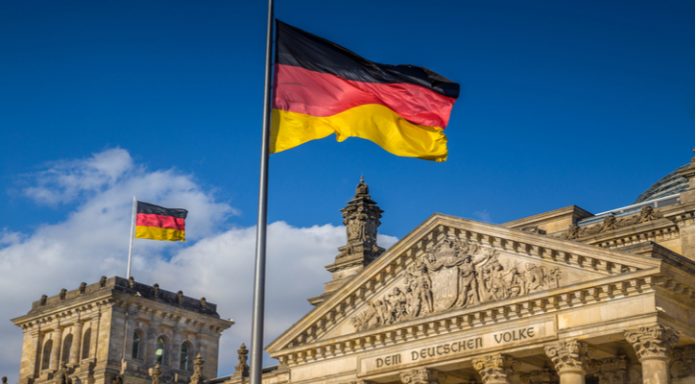The pound euro exchange rate ended the day 0.18% lower at €1.1292. Disappointing data and Brexit woes kept the pound lower, whilst the raising of political risk in Germany lifted the euro.
| What do these figures mean? |
|---|
When measuring the value of a pair of currencies, one set equals 1 unit and the other shows the current equivalent. As the market moves, the amount will vary from minute to minute. For example, it could be written: 1 GBP = 1.13990 EUR Here, £1 is equivalent to approximately €1.14. This specifically measures the pound’s worth against the euro. If the euro amount increases in this pairing, it’s positive for the pound. Or, if you were looking at it the other way around: 1 EUR = 0.87271 GBP In this example, €1 is equivalent to approximately £0.87. This measures the euro’s worth versus the British pound. If the sterling number gets larger, it’s good news for the euro. |
The pound was out of favour at the start of the week as investors digested manufacturing activity data. The UK Manufacturing purchasing managers index (PMI) ticked higher in June to 54.4 up from 54.3 in May and ahead of expectations of 54. PMI is an indicator of economic health for a sector that is based on a monthly survey of company executives on five major survey areas: new orders, inventory levels, production, supplier deliveries and employment. Delving deeper into the figures and the picture was not quite so encouraging. For a second month manufacturing output increased, not to fulfil new orders, but to increase inventories or to fulfil old orders. This is not a sustainable position to follow and does not bode well going forward. Demand will need to ramp up considerably in order to avoid a serious slowdown in manufacturing output in the not too distant future.
Rather than focus on the headline number which was stronger than analysts had anticipated and would normally boost the pound, investors focused on the story behind the numbers which was concerning.
Today the construction sector will be under the spotlight as market participants look to the construction PMI. Analysts are forecasting that activity will remain content in June at 52.5. Should the construction sector activity be stronger than forecast the pound could rally.
| Why does strong economic data boost a country’s currency? |
|---|
| Solid economic indicators point to a strong economy. Strong economies have strong currencies because institutions look to invest in countries where growth prospects are high. These institutions require local currency to invest in the country, thus increasing demand and pushing up the money’s worth. So, when a country or region has good economic news, the value of the currency tends to rise. |
Deal Between Merkel & Seehofer Prevents Government Collapsing in Germany
The euro was under pressure as manufacturing PMI activity in the eurozone was weaker than analysts had expected, increasing concerns over the slowing of momentum in the eurozone economy.
Political risk in Germany has been a key factor weighing on the demand for the euro for several sessions, including the start of trading on Monday. The interior minister and Chair of the CSU, Mr Seehofer, attacked German Chancellor Angela Merkel ahead of crunch talks which some feared could bring an end to the German coalition government. However, the two leaders of the coalition parties managed to reach an agreement over the migration crisis. This means that Germany has averted the possible collapse of the coalition government easing political risk. As a result, the euro surged higher.
| How does political risk have impact on a currency? |
|---|
| Political risk drags on the confidence of consumers and businesses alike, which means both corporations and regular households are then less inclined to spend money. The drop in spending, in turn, slows the economy. Foreign investors prefer to invest their money in politically stable countries as well as those with strong economies. Signs that a country is politically or economically less stable will result in foreign investors pulling their money out of the country. This means selling out of the local currency, which then increases its supply and, in turn, devalues the money. |
This publication is provided for general information purposes only and is not intended to cover every aspect of the topics with which it deals. It is not intended to amount to advice on which you should rely. You must obtain professional or specialist advice before taking, or refraining from, any action on the basis of the content in this publication. The information in this publication does not constitute legal, tax or other professional advice from TransferWise Inc., Currency Live or its affiliates. Prior results do not guarantee a similar outcome. We make no representations, warranties or guarantees, whether express or implied, that the content in the publication is accurate, complete or up to date. Consult our risk warning page for more details.
This article was initially published on TransferWise.com from the same author. The content at Currency Live is the sole opinion of the authors and in no way reflects the views of TransferWise Inc.





